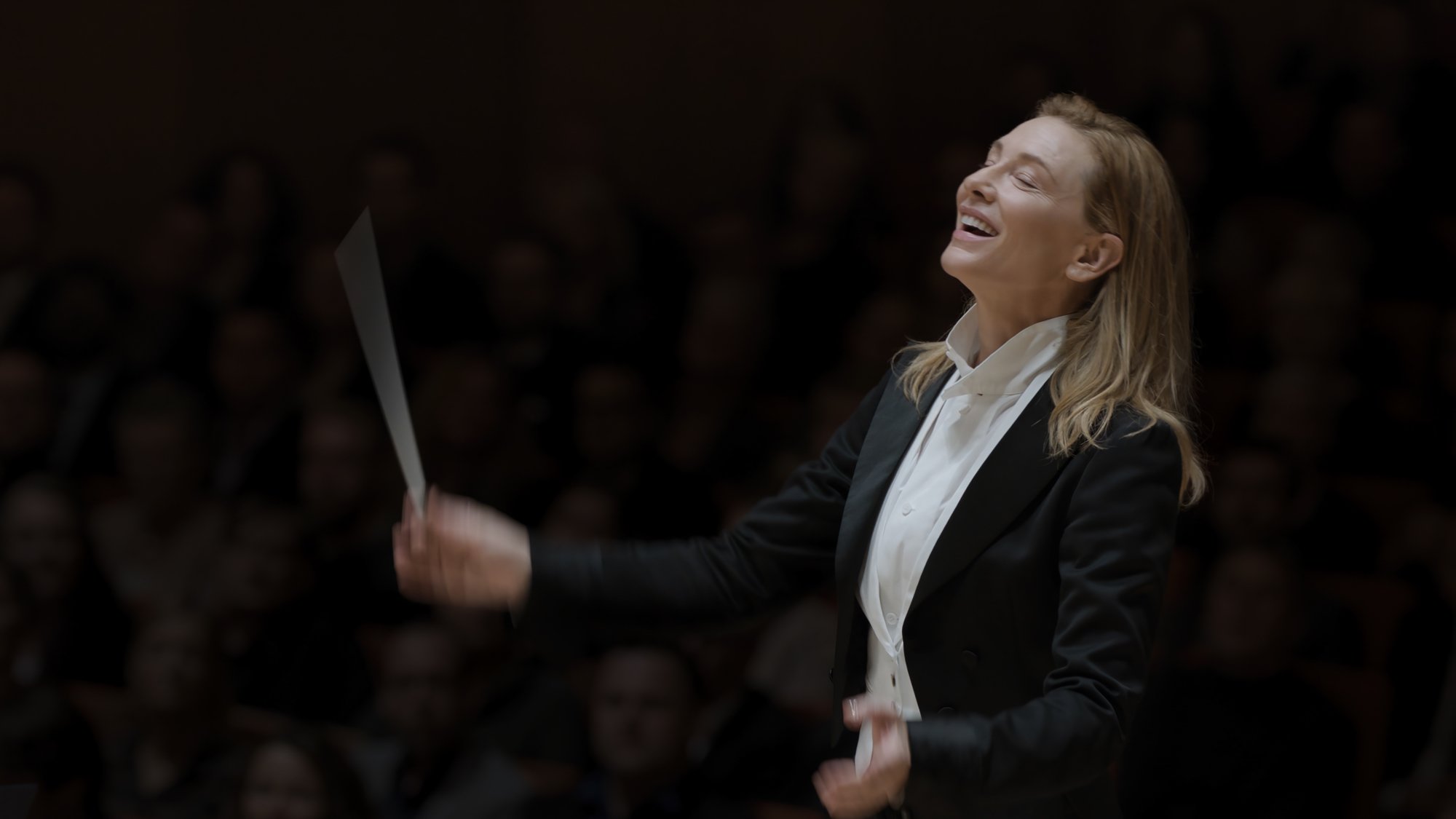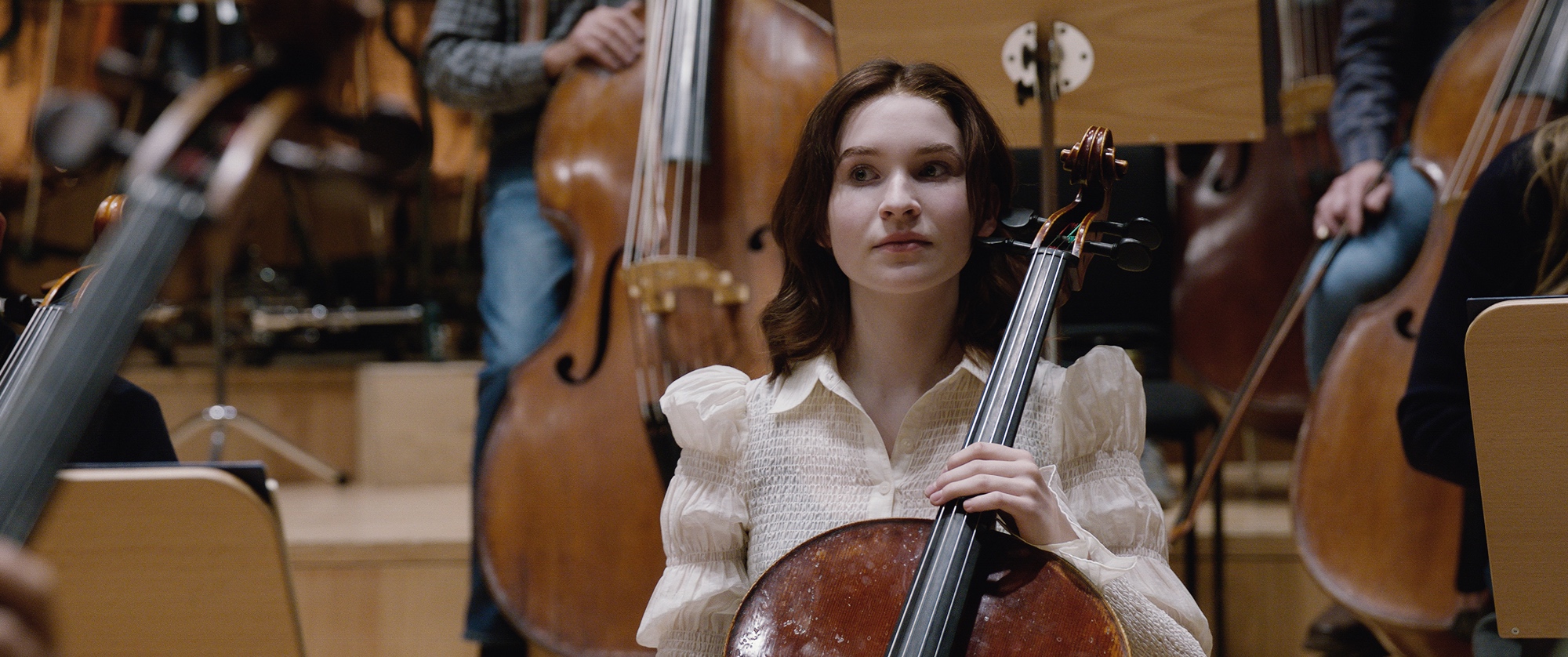
‘TÁR’ Movie Review: Cate Blanchett Delivers a Dramatic Masterclass in Todd Field’s Aching Character Study
Some performances are played so perfectly that the films they belong in feel impossible without them. Cate Blanchett offers exactly that to Todd Field’s TÁR. However, that doesn’t mean that the film isn’t an absolute knockout in other areas, as it so vigorously takes its audience down a hypnotizing tale of self-destruction. It’s destined to be one of the most memorable films of the year.

‘TÁR’ follows the chaotic world of a fictionalized conductor

Lydia Tár (Blanchett) is at the top of the international world of classical music. The world hails her as one of the greatest composers/conductors to ever grace the scene. Additionally, she made history as the first female chief conductor of a major German orchestra. Lydia has the respect of her players and the masses, but her personal life exists in quiet distress.
TÁR finds its title character trying to juggle family life, her massive career, and the politics behind the industry. However, she finds it increasingly difficult to manage all of the moving parts. Lydia’s life begins to spiral out of control as she works on what the classical music scene is highly anticipating as one of her best works yet.
Writer/director Todd Field examines power in stature
Field’s TÁR screenplay builds his title character up, emphasizing her greatness to the audience. We see her preparation process and all that goes into making her into the public persona that is Lydia. Everybody wants a piece of her, but she always feels just out of reach. However, there’s danger that comes with putting any person on such a pedestal, and she’s about to discover the unforgiving nature of the world that any amount of awards cannot repair.
The opening scene marvelously introduces Lydia through a Q&A format, rattling off her impressive on-paper qualifications. The monologue to follow acquaints us with the character, but also gives the audience a window into the type of person she is. Lydia speaks of gender spectacle and bias within the classical music world, as she refuses to feed into her interviewer’s prompts. In a second monologue, she harshly responds to a student’s concerns surrounding white, cisgender male composers of the past within a modern framework. Lydia’s use of the word “robot” as an insult further insinuates her rejection of modern thought processes.
TÁR deconstructs the notion of power, which Lydia holds an abundance of thanks to her prodigious stature. She commonly wields it like a hammer to smash those smaller than her. Whether she’s intimidating a bully at her daughter’s school or speaking to players in her orchestra, she commands attention in every conversation. However, a young Russian cellist (Sophie Kauer) challenges the status quo, as she refuses to ever allow herself to feel intimidated by her conductor’s stature or the power that she holds over her.
‘TÁR’ is an extraordinary character study rooted in tragedy

Lydia is a fascinating subject with plenty to say admist her downward spiral. She’s not necessarily a likable protagonist, but she doesn’t need to be. Field’s screenplay instills so much nuance and strength into this character, who has lost her way. The meaning of music became a symbol of status and politics, but TÁR depicts her journey in rediscovering what instigated her passion for classical music to begin with. But is it too late?
Blanchett is a tremendous actor with a proven filmography displaying an otherworldly range from one genre to the next. Even so, TÁR is one of the best performances of her career, as she transforms Lydia from a fictional character into one so fully realized that it’s easy to be convinced that it’s a work of non-fiction. Blanchett delivers a masterclass in the art of performance, perfectly showcased by two sensational monologues that truly make this performance unforgettable.
This drama set in the world of classical music is Field’s first film since 2006’s Little Children. He returned to filmmaking with a marvelous exercise in a character study that walks the line between comedy and tragedy. It’s a long adventure that requires patience, but it’s well worth the time investment. TÁR is an all-encompassing cinematic experience that’s utterly engrossing and symbolically monumental.
TÁR plays in select theaters on Oct. 7 and goes nationwide on Oct. 28.


